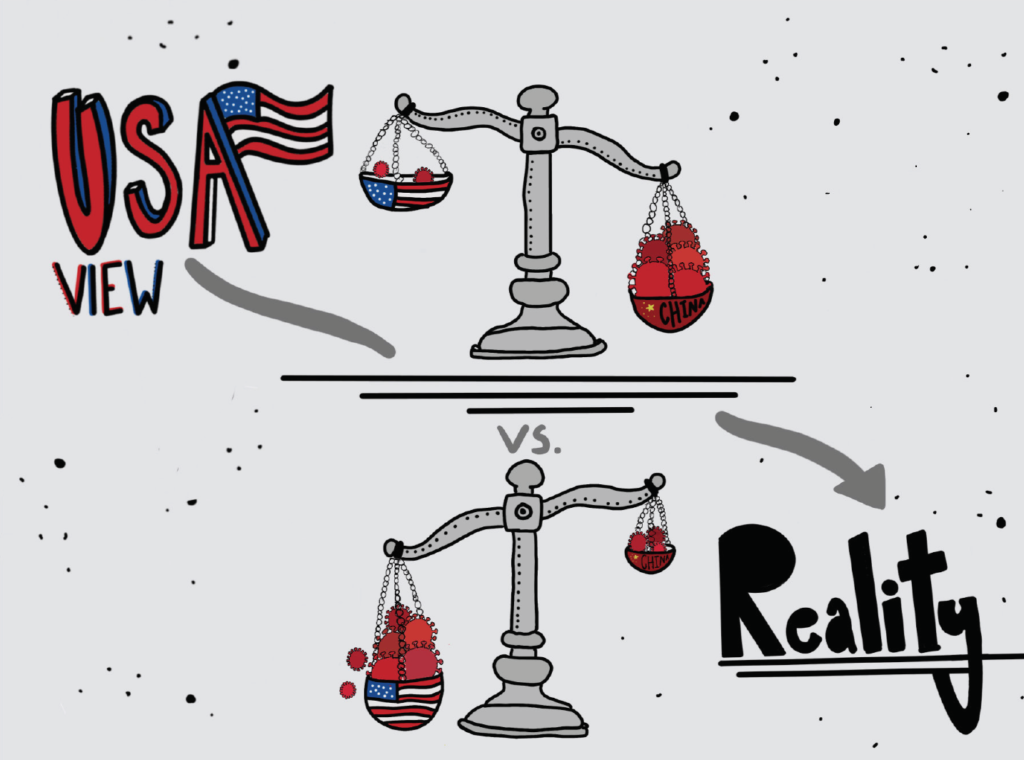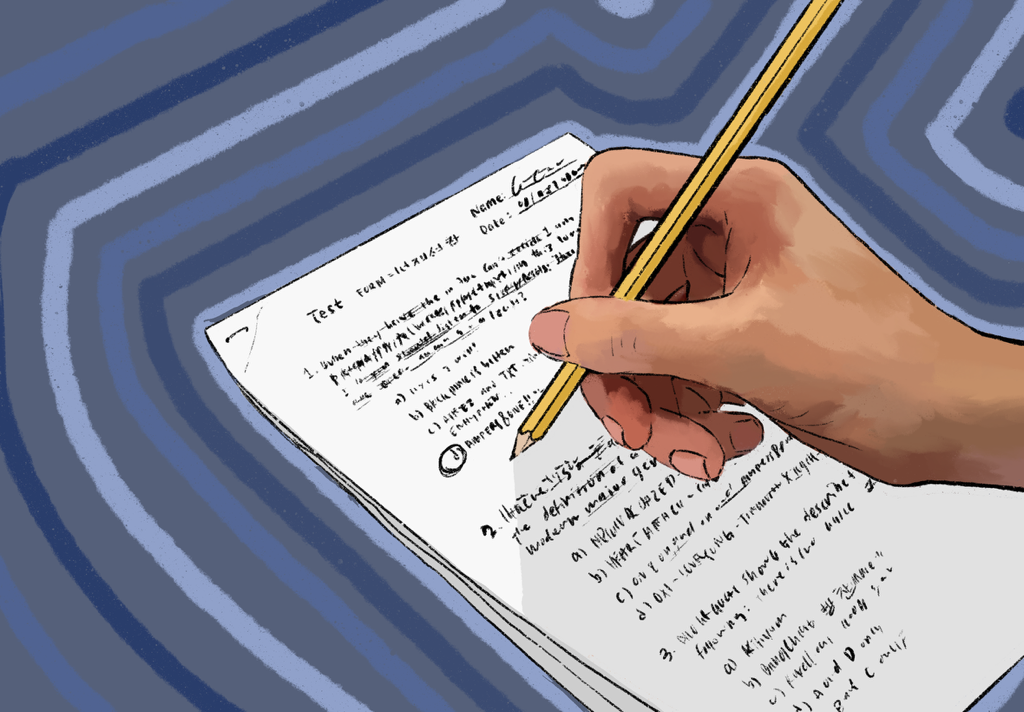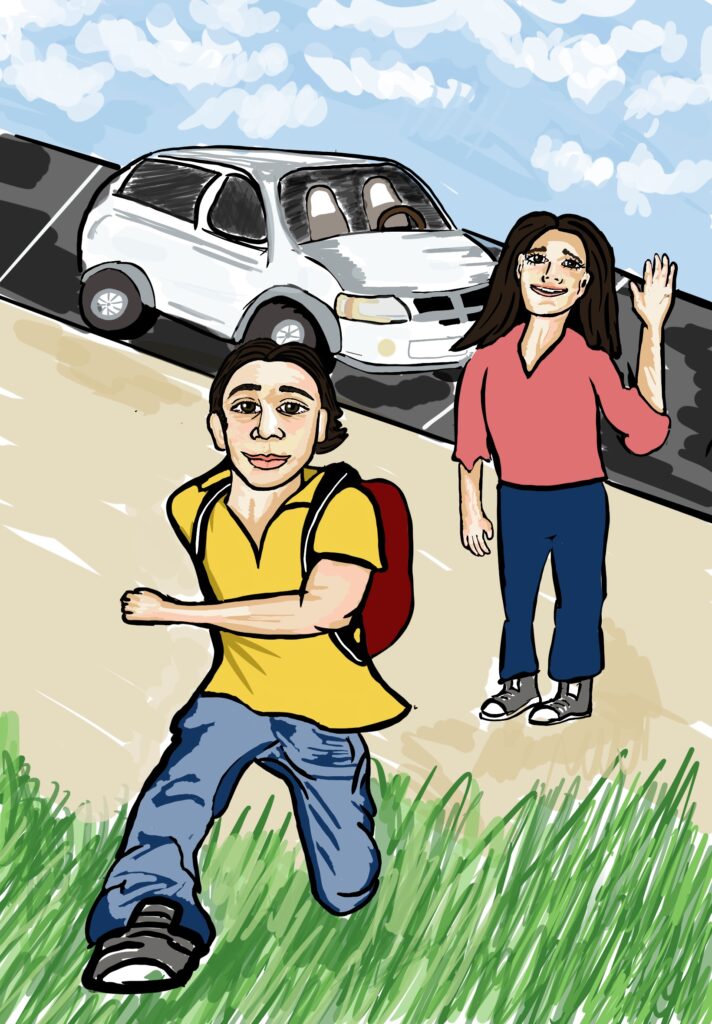
Graphic by Ava Gizzie/ The Choate News
Growing up in a majority white town, it didn’t faze me when kids on my school bus asked me why my eyes were so small or when the boy sitting across from me in my social studies class asked if I ate dogs. These little remarks never struck me as mean, so I never said anything, and neither did the adults around me who heard them. Unlike other people of color, East Asian Americans aren’t unjustly targeted by the police system or scapegoated for acts of terrorism, so why bother talking about our struggles? I learned to look past the racism that I saw, and I turned a blind eye to the negative stereotypes that surrounded Asians in the media, workplace, and other areas of society.
It wasn’t until I came to Choate that I realized how much I had been hiding my Asian culture to fit in. I stopped being embarrassed of speaking Chinese in public or eating Chinese food. And, because I was now in a much more diverse and accepting community, it seemed to me that racism against Asians in my immediate world had decreased dramatically. I thought that the misconceptions that all Asians were weird and dirty were finally gone. I thought that people finally learned to distinguish Asians living in the U.S. from the few people in China who ate dogs. It never occured to me that, outside of what to me was the happy and accepting bubble of Choate, life was different.
Despite the mixed emotions I felt toward my Asian identity, I was never afraid to be Asian until the novel coronavirus (COVID-19) outbreak. I had never been afraid until I woke up one morning, and the first post that I saw on Instagram showed six to seven news headlines, each a variation of the same dreadful sentiment: “Crowd Mocks Elderly Asian Man As He’s Robbed, Assaulted In Brutal Video”; “What’s Spreading Faster Than Coronavirus in the U.S.? Racist Assaults and Ignorant Attacks Against Asians”; “Arrest Made in Violent Daylight Attack of 2 Seniors in San Francisco’s Chinatown”; “Elderly Asian Man Punched by Teen in Random Attack in NYC.” I scrolled down and saw a post with Dutch students donning traditional Chinese costumes and holding a sign that read, “Corona Time.”
My heart sank as day after day, more news stories focused on the increasing number of physical and verbal assaults against Asian people because of the misconceptions surrounding the origins of the coronavirus. I began to fear that my own family and friends would be the next targets of these ignorant attacks and racist behaviors. A part of me was relieved that my preseason trip was canceled — I wouldn’t have to walk through the airport and attempt to suppress my seasonal allergies, for fear that my sniffles might be mistaken for the coronavirus.
As the weeks went on and the headlines multiplied, my fear morphed into a confused anger. Do people really believe they will catch coronavirus simply by eating Chinese food? Do they think that all Asians eat bats and snakes and other wild animals? Do they believe that since the coronavirus outbreak, all Asian Americans recently visited China? Do they think that all Asians are natural carriers of the virus and are intentionally trying to spread it? The idea that all Asian people inherently possess the coronavirus just because of their race is not based on reasoning or scientific evidence. It’s based on centuries of xenophobia and racism that people finally have a reason to act upon. When political figures insist on referring to the coronavirus as the “Chinese virus” or the “Kung-Flu,” it only fuels the existing xenophobic misconceptions that the virus is attached to an ethnicity and that Chinese Americans will always be foreign threats to the U.S.
The coronavirus has uprooted a side of the U.S. that I haven’t seen since coming to Choate. I naively assumed that the American mindset changed, but the malicious reactions to the coronavirus prove that the same fear and ignorance of Asians that I witnessed in elementary school never went away. Acceptance of Asian Americans will never exist if we do not begin to hold the media, politicians, celebrities, and others in our own lives accountable for their perpetuation of misinformed racism. As we witness this blatant spike in ignorance driven xenophobia, we must speak up. For all of the little Asian American girls in social studies classes, for minorities everywhere, we must fight back with facts.




